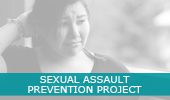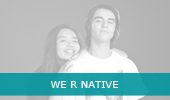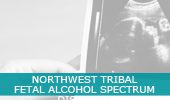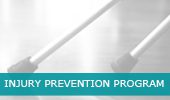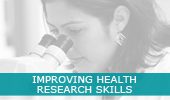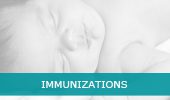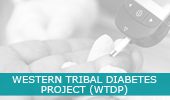
Our Mission
Housed at the NPAIHB Tribal EpiCenter, the NW NARCH program is part of a national research and science education program that includes input from tribes, tribal organizations, and universities.
Our Vision
Our main goal is to improve tribal health by increasing the numbers of tribal people who are engaged in biomedical and social science research and who can bring the benefits of academic research into their communities.

Narch E-News
Our digital newsletter includes program highlights, interviews, trainee spotlights, professional opportunities, and other special features.
Research Support Fellowships
Financial support for undergraduate and graduate AI/AN students conducting research in the biomedical and social sciences.
Research Support Fellowships
Financial support for undergraduate and graduate AI/AN students conducting research in the biomedical and social sciences.
NARCH Resource Library
Applied Biostatistics and Data Science
Specialized training for AI/AN health professionals and students seeking to enhance their quantitative skills.
Summer Research Training Institute
An intensive two-week summer research training program designed for health professionals and students interested in tribal health issues.
Internship Program
Public Health Research Academy for Native High School Students
Introducing junior and senior AI/AN high school students to the diverse world of public health sciences and public health research.
About Us
Upcoming Events
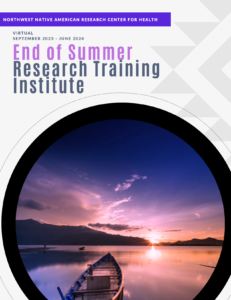
End of Summer Research Training Institute Information Brochure
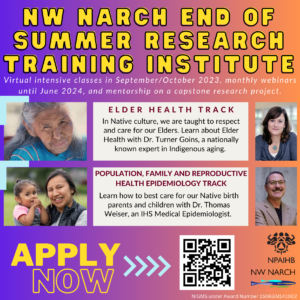
NW NARCH End of Summer Research Training Institute Flyer
Stay Connected
The NARCH email listserv is one of the main forms of communication we use. Please leave your name and email to stay connected to our program, as well as our most recent news and events.
2020 Health Conference Archive
The Partnership for Native American Cancer Prevention – IntroOverview – Jani Ingram, Professor, Analytical and Environmental Chemistry, Northern Arizona University
Utilizing Electronic Health Records (EHR) Alerts to Improve Child Passenger Safety in Northwest Tribal Communities – Candice Jiménez, Northwest Portland Area Indian Health Board
Raising Healthy Native Youth: AI/AN Inclusive Pathways for Adolescent Health – Michelle Singer, Northwest Portland Area Indian Health Board
How the ANTHC is Developing Immersive Holograms to Promote Substance Use Dialogue in Alaska Native Communities – Tim Collins, Alaska Native Tribal Health Consortium
NTP I: Community Action Board – Charene Alexander, Northwest Indian College
Community -> Research -> Action: a NARCH Example – Bill Freeman, Northwest Indian College
“It’s Time for a Change, I Need to, I Have to”: Turning Points in Recovery from Substance Misuse among Individuals with the Lived Experience of Homelessness in Anchorage, Alaska – Alicia Marvin, University of Alaska Anchorage
Northwest Tribal Epidemiology Center – Victoria Warren-Mears, Northwest Portland Area Indian Health Board
Alaska Native Tribal Health Consortium – Timothy Thomas, Alaska Native Tribal Health Consortium
California Tribal Epidemiology Center – Vanesscia Cresci, California Rural Indian Health Board
University of Washington – Karina Walters, University of Washington
Alaska Native Patient and Provider Perspectives on the Multi-target Stool DNA Test Compared with Colonoscopy for Colorectal Cancer Screening – Diana Redwood, Alaska Native Tribal Health Consortium, Alaska Native Epidemiology Center
Gynecologic Cancer Incidence and Mortality among American Indian/Alaska Native Women in the Pacific Northwest, 1996-2016 – Mercedes Weisenberger, Oregon Health and Science University
Native Spirit Boys & Girls Club: Development, Implementation, and Evaluation of a Culturally- grounded After-school Program for American Indian Youth in an Urban Setting – Amanda Hunter, University of Arizona
Exploring Methodologies of Decolonizing and Indigenizing Research Methods – Danica Brown, Northwest Portland Area Indian Health Board
Developing a Study of Colorectal Cancer Risk and Protective Factors among Alaska Native People Using a Community Based Participatory Research Framework – Sarah Nash & Diana Redwood, Alaska Native Tribal Health Consortium
Establishment of an Oral Health surveillance System in Western Alaska Using the Electronic Dental Record – Timothy Thomas, Director of Clinical and Research Services Department in the Division of Community Health Services, Alaska Native Tribal Health Consortium
Indigenized Colville Tribal Research – Randall Gottfriedson, SimHayKin Jack, and Kookguma Scumhist Jack, Colville Confederated Tribes
